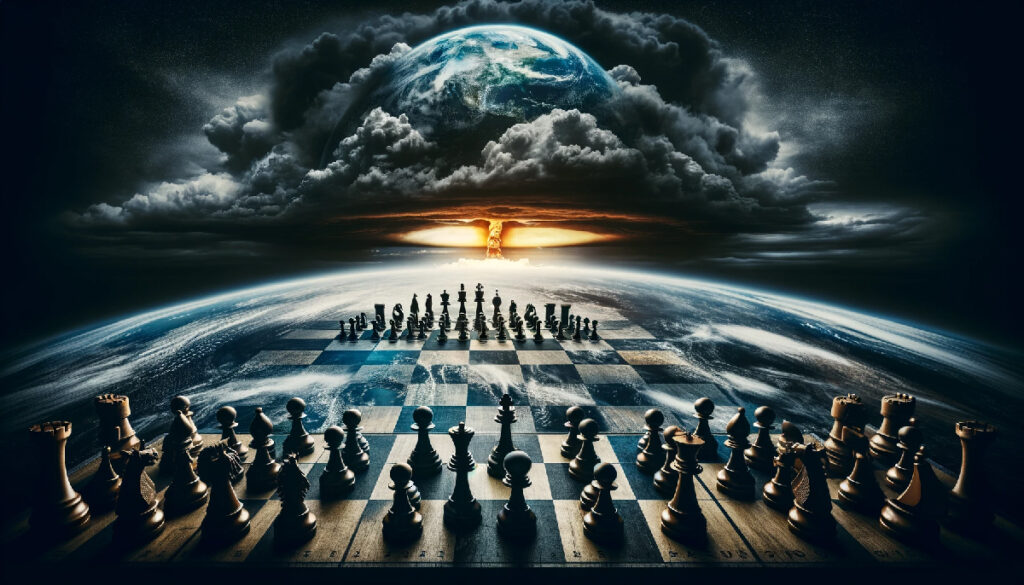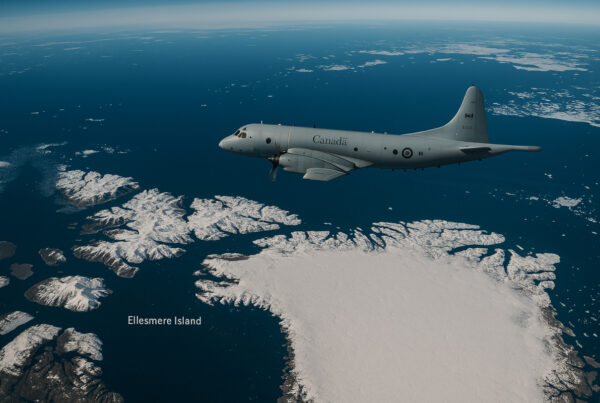
Nuclear Brinkmanship – DALL-E
In a world where geopolitical tensions simmer on the edge of a precipice, the specter of nuclear conflict looms larger than ever. Recent statements by Dmitry Medvedev, the former Russian President and current Deputy Chairman of Russia’s Security Council, have reignited global anxieties over the potential for nuclear apocalypse. Medvedev’s warnings, articulated through various channels, underscore a chilling readiness to resort to nuclear weapons in response to perceived aggressions against Russia, particularly from NATO or through Ukrainian successes in contested regions.
“Since our military capabilities are incomparable, we will simply have no choice. The response will be asymmetrical. To protect the territorial integrity of our country, ballistic and cruise missiles with special warheads will be used… This will be the proverbial Apocalypse. The end of everything.” – Dmitry Medvedev
A Precarious Stance
Medvedev’s rhetoric is not spontaneous but deeply rooted in Russia’s nuclear doctrine, which outlines the grim scenarios under which the nation would consider deploying its nuclear arsenal. This doctrine, referenced in Medvedev’s pronouncements, delineates the use of nuclear weapons in response to attacks that threaten Russia’s existence or territorial integrity. It’s a stark reminder of the high stakes involved in the conflict enveloping Eastern Europe, notably the ongoing strife in Ukraine.
A Historical Perspective
Medvedev’s narrative is part of a broader discourse that frames the Eastern European conflict and Western involvement as existential threats to Russia. By positioning a nuclear response as a direct consequence of aggression, Medvedev amplifies a message designed to deter and caution against further escalation in the region. His warnings, as reported by outlets such as Reuters, Zero Hedge, and the South China Morning Post, have painted a dire picture of the potential outcomes of continued conflict.
Ukraine and NATO’s Role
Central to Medvedev’s warnings is the concern over Ukrainian attacks on Russian territories and the supply of arms to Ukraine by NATO allies. The discourse suggests that any success by Ukrainian forces, particularly if perceived to be enabled by NATO, could potentially trigger a nuclear response from Russia. This narrative is leveraged to underscore the gravity of the situation and to dissuade further Western support for Ukraine.
The Risk of Nuclear Escalation
The repeated invocation of nuclear options by a high-ranking Russian official like Medvedev has not gone unchallenged. Critics have sometimes dismissed these warnings as hyperbolic or as strategic posturing intended to emphasize Russia’s military capabilities. However, the global community remains deeply concerned about the risks of nuclear escalation in a region already fraught with tension and conflict.
A Call for Diplomacy and De-escalation
Medvedev’s stark warnings serve as a grim reminder of the fragile state of international relations and the catastrophic potential of nuclear conflict. As the world watches the unfolding events in Eastern Europe, the importance of diplomacy, dialogue, and de-escalation has never been more apparent. The global community must heed these warnings, not as inevitabilities but as urgent calls to step back from the brink and seek peaceful resolutions to ongoing conflicts.
In a world teetering on the edge, the path forward must be carved with caution, diplomacy, and a collective commitment to avoiding a nuclear apocalypse. The dialogue initiated by Medvedev’s warnings, while alarming, provides an opportunity for reflection and reassessment of strategies to ensure a future where such dire predictions remain unfulfilled.








